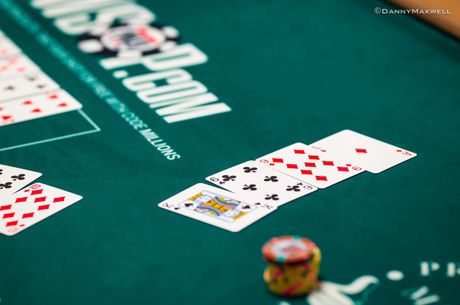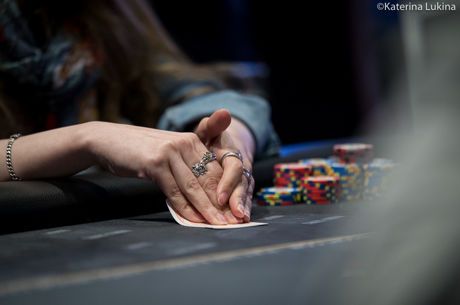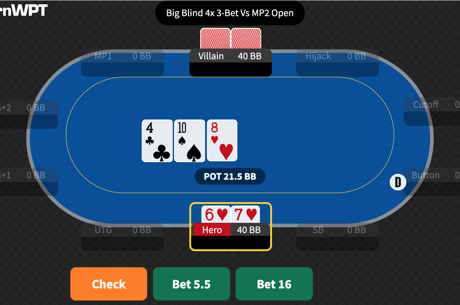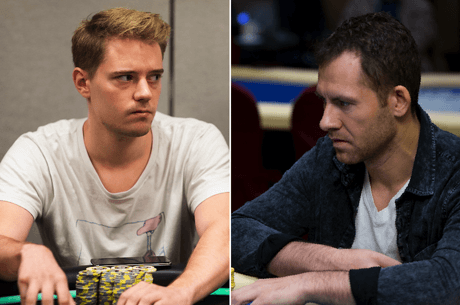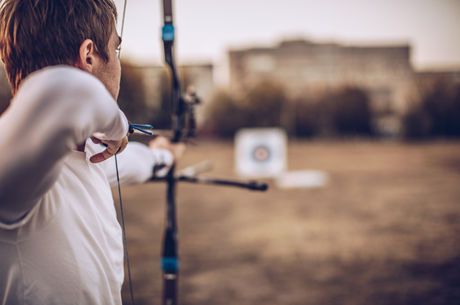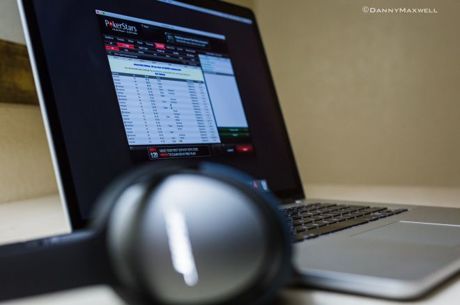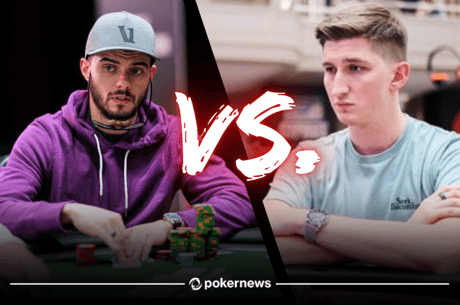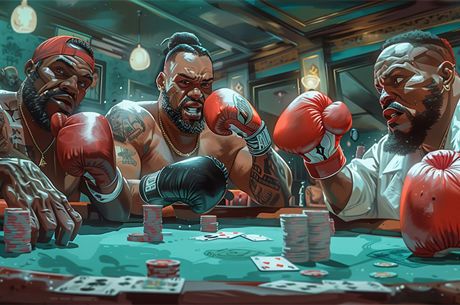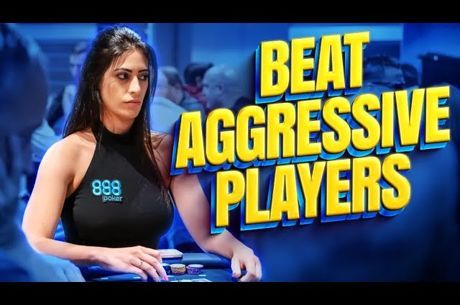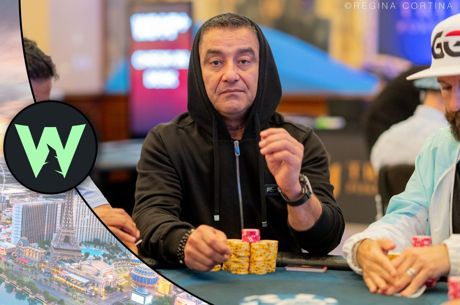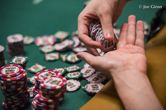Hand Analysis: Eric Froelich vs Calvin Anderson at the PCA
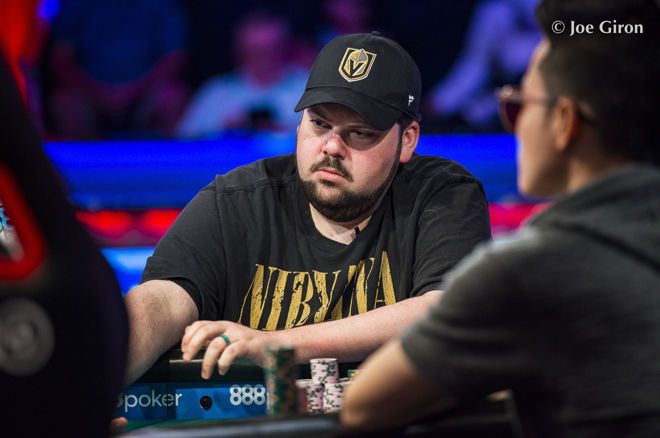
Eric Froehlich is a poker pro who once held the title of youngest World Series of Poker (WSOP) bracelet winner when he took down a $1,500 limit hold'em event in 2005.
Since then, he took home one more WSOP bracelet ($ 1,500 Pot-Limit Omaha event in 2006) and collected over $2,6m in live earnings.
Based in Las Vegas, Froehlich is also a professional Magic: The Gathering player and member of the Magic: The Gathering Hall of Fame.
Today's hand analysis is from the 2011 PokerStars Caribbean Adventure (PCA) Main Event, a tournament Froehlich close with a 33-place finish for $59,000.
In this article, we look at a conversation between Froehlich and Kristy Arnett, where the poker pro explains the thinking process behind his actions.
Do you use the 'Hand Moments'?
Make one hell of a play and let the world know all about it.
Share your most exciting plays through "Hand Moments"!
The Background
- We are are the beginning of Day 4 and Froehlich has 1,187,000 in chips.
- The blinds are 5,000-10,000 with a 1,000 ante.
What Was Your Table Image Before This Hand?
I've been playing this whole tournament really nitty. I haven't really been playing many hands. The day before went really well for me because I didn't have to do anything really tricky.
I was able to get it all-in preflop with pocket aces versus ace-king, and queens versus twos. I had things go pretty easily.
Did You Decide to Play Tight Because the Field Was Overaggressive?
I played nitty because I've been given the opportunity to do so.
Usually you really have to diversify your range and make sure you're not just three-betting really good hands because you'll never get action.
Maybe I was getting action anyway because of the past image or because I looked like a younger, more online player to people who didn't know me.
If I don't have to bluff, I'm not going to, as long as I can keep accumulating chips.
SEE ALSO: Visiting a New Poker Room? You Better Ask These 7 Questions Before You Play
The Hand
Preflop Action: Froehlich raised in the hijack with 7♥7♦, and Calvin Anderson re-raised from the button. Froehlich called.
I can't remember the exact bet sizing pre-flop, but I remember he didn't make it that much more to call. It was a small three-bet.
Did You Think about Folding or Four-Betting?
If I four-bet preflop, I'm turning my hand into a bluff because if he five-bet shoves, I can't call, and if he just calls my four-bet, then I'm playing out of position in a huge pot.
I gave more consideration to folding than raising, but I thought a call would be the best option.
Flop Action: The flop came Q♥9♣6♦. Froehlich checked and Anderson bet 63,000. Froehlich called.
Why Did You Decide to Check?
He was the one who three-bet pre-flop. It's not an amazing flop for my hand.
At this point, I'd prefer a free card to anything else, but I'm expecting him to continuation bet.
I'm going to call almost every time on this flop because my hand has really good showdown value. There's no point in calling a three-bet preflop and folding sevens to one bet on that kind of board.
I'm at least going to see a turn card and see where the action goes from there.
READ ALSO: Maximizing Expectation When Betting For Value
Turn Action: The turn was the Q♣. The board read Q♥9♣6♦Q♣. Both players checked.
What Is Your thought Process on the Turn?
Had he fired another big bet, I would have folded.
If he did and I decided to call, I'd likely facing an all-in on the river, and the only card I would want to see on the river was a seven.
If I just shove there, I'm only getting called by hands that beat me. Neither of those are great options.
If my hand is ahead on the flop, it's obviously still ahead on the turn, so I'm hoping he checks back.
River Action: The river was the Q♠. The board read Q♥9♣6♦Q♣Q♠. Froehlich checked and Anderson bet 99,000. Froehlich called. Anderson showed J♦10♥ for a missed straight draw. Froehlich wins with 7♥7♦.
When the river came a queen, I was hoping he'd check behind with a hand like ace-king and showdown value.
When he bet, it became kind of awkward because he could pretty safely bet a hand like pocket tens or jacks for value.
He could pretty safely bet a nine, too, although it'd be hard for him to have a nine in a three-bet pot the way the hand played out.
He could value bet pocket eights, as well.
There are a lot of hands he could be betting that are better than mine, but based on the way I saw him play hands against other players at the table, I just thought there was too high of a likelihood he could be bluffing or have ace-high.
Did His Bet Sizing Affect Your Decision?
A little. It's hard to put into words exactly what your thought process is when analyzing what someone decides to bet.
When he bet 99,000 with a stack of 400,000 behind, it really could go either way and because I think it's so close to fifty-fifty whether I'm ahead there, the odds are too much in my favor to fold.
Try PokerCraft (It's Free!)
Chart your poker journey and improve your game with PokerCraft, GGpoker's exclusive poker tool.

